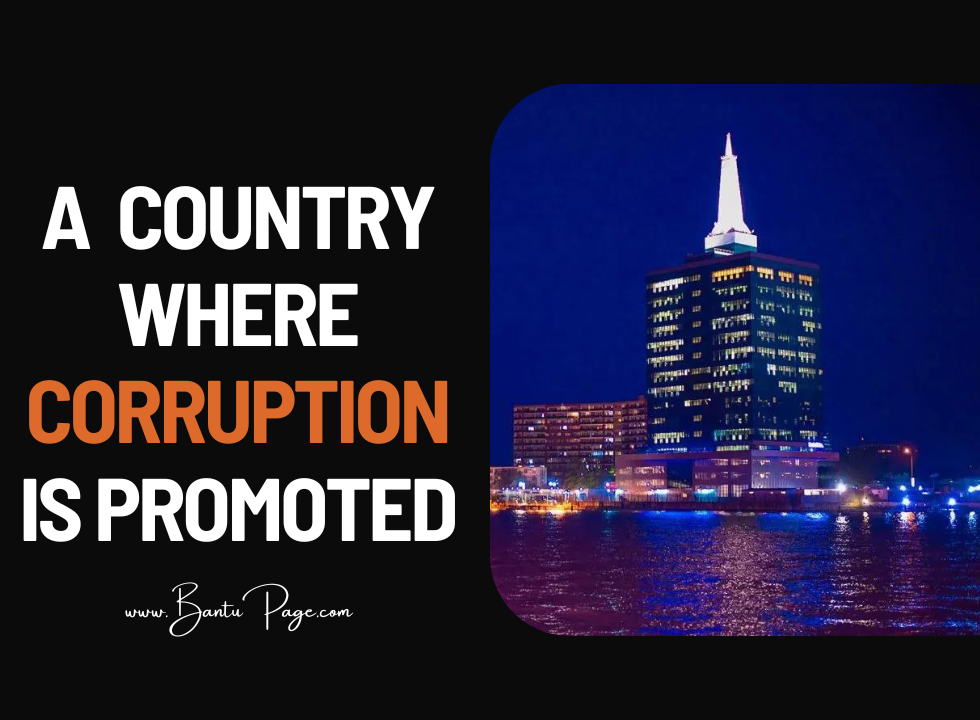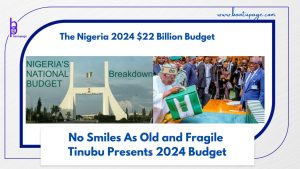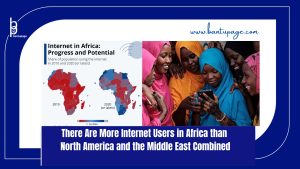
Is Nigeria endemically corrupt? Yes!
Are Nigerian politicians endemically corrupt? Yes!
Has any top-flight politician in Nigeria ever faced a prison term? No!
Conclusion:
Nigeria encourages and promotes thievery.
Politics in Nigeria is an outlet to acquire riches, not wealth. Riches in the face of abject poverty are not a cause for concern. The power of monetary disposition erodes the impetus to create generational wealth. The majority of Nigerians are poor—extremely poor, to be precise; they feed on scrubs from those who are supposed to create a thriving atmosphere. Over seventy percent of Nigerians were born within the last forty years; they have not known a transparent system or politicians whose endeavours bear selflessness for the country.
When criminals make laws, transparency loses traction. It is impossible to make laws that will inhibit your way of life; that is the reality of Nigeria. The indiscipline created by those at the top has trickled down to the seventy percent who entered the world within the last forty years. A country where indiscipline, thievery, and criminals dominate can only bear fruits resembling its embodiment.
Despite the aforementioned, social media and the advent of technology have made access to global information easy. The abundant youths of Nigeria, whose future is shattered, have unrestricted access to global reality. They can see what ought to be their future; this has birthed an incongruence between the leadership and the teeming youth. During the last forty years of total mismanagement and embezzlement of the commonwealth, the leadership of Nigeria abandoned every aspect of society where growth was required to sustain posterity who are now bearing the fruits of the foregone benefits.
Japa
Given the opportunities these young people see in other countries, a generation of educated, highly skilled, and middle-class Nigerians has created a pattern of emigrating to countries offering better job opportunities and living conditions. When they settle in these countries, they count this as an achievement. When achievement connects to successfully leaving your country for another, such a society has lost all pride or patriotism. When the nostalgia of childhood and the place of growing up are readily abandoned, ignoring the social character that forms a person’s upbringing, something unacceptable must be going on. Nigeria has disastrously failed its people. It has made them second-class citizens of the world. Japa is a Nigerian noun in contemporary Nigerian vernacular that means leaving the country for another in search of greener pastures.
Have you seen how Nigerians are treated overseas? Dubai, the UAE, Seychelles, Malaysia, Thailand, India, South Africa, and many other countries. They literally at the presentation of a Nigerian passport, abuse every right in the book. Why do you think they do this? If you don’t respect yourself, none will respect you.
Is Nigeria endemically corrupt?
None would blink an eye at this question. It is glaringly undeniable, but the trouble here is, if this is the case, why is not much done to correct this? Well, as emphasised in the opening paragraphs, corruption is no longer a serious crime; it is now a way of life, a culture. When a detriment develops into a culture, it requires generational effort to dissuade or discontinue it. Nigerians are stuck on this bandwagon, at least for the foreseeable future.
Are Nigerian politicians endemically corrupt?
Emphatically, yes! The question comes begging: why aren’t any in prison? The answer is simple. In most cases, corruption requires a chain of interconnected institutions working together to feed their greed. These institutions also include those in charge of taking action against corrupt individuals. How does a corrupt institution charge their buddies? The judiciary allows itself to become buddies with these politicians which as a result weakens their ability to hand out judgement that are proportional to the crime. The reality is beginning to clear up, don’t you think? The corruption network is so interconnected that a complete overhaul of the system is required to even make a dent.
Who can make that dent? These corrupt institutions create obstacles for those not aligned with their agenda, thus making it near impossible to stay transparent. This is why you see the same recycled faces running the country. Nigeria is captive to a handful of families and individuals whose interest lies more in their immediate fleeting lives of opulence than the long-term interests of the nation and its growing youths.
Has any top-flight politician in Nigeria ever faced a prison term?
Well, the answer here is yes and no. Let me explain: top-flight politicians are near zero. Orji Uzor Kalu is a former governor of Abia State; he definitely qualifies as a top-flight politician. Yes, he was convicted and jailed, but the whole process seems like a fallout between the various political factions. The case for which he was sentenced did not border on the iceberg of his corrupt endeavours. His sentence was light in comparison to the crime; he was housed in a VIP prison, and the Supreme Court quickly cleared him of all charges. Imagine someone as unequivocally corrupt as Orji Uzor Kalu being exonerated by the highest court in the land, thus undermining public confidence in the legal system and reinforcing the co-working relationship between corrupt cronies. After being returned to the streets, he went back to lavishing the largesse of his corruptly acquired riches.
The kindergarten display of the judicial process, the charlatanry of the judiciary, and the sycophantic performance of the various governmental apparatus create a circus between the various arms of government. Nigeria is gone! And, yes, none has ever faced a prison term. The EFCC (Economic and Financial Crimes Commission), designed to keep an eye on corruption, ends up fattening their pockets with the spoils of the loot. It would seem that we created another arm to facilitate the looting; nothing has changed, but it has aggravated. Nigerians are left to live within a system where transparency feels like a farfetched concept only possible outside the thin borders of the Federal Republic of Nigeria.
The lack of shame among those in charge of Nigeria can overwhelm anyone with the slightest quantum of fairness left in them. Corruption undermines hard work, promotes thievery, rewards the connected, and devalues a nation’s ability to develop, invent, and weaken educational institutions.
See video below….
Writer: – Ikechukwu Orji –





